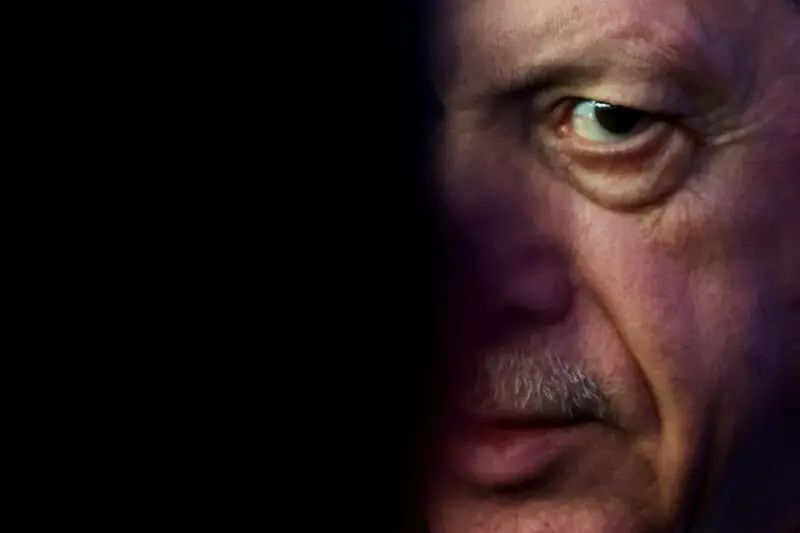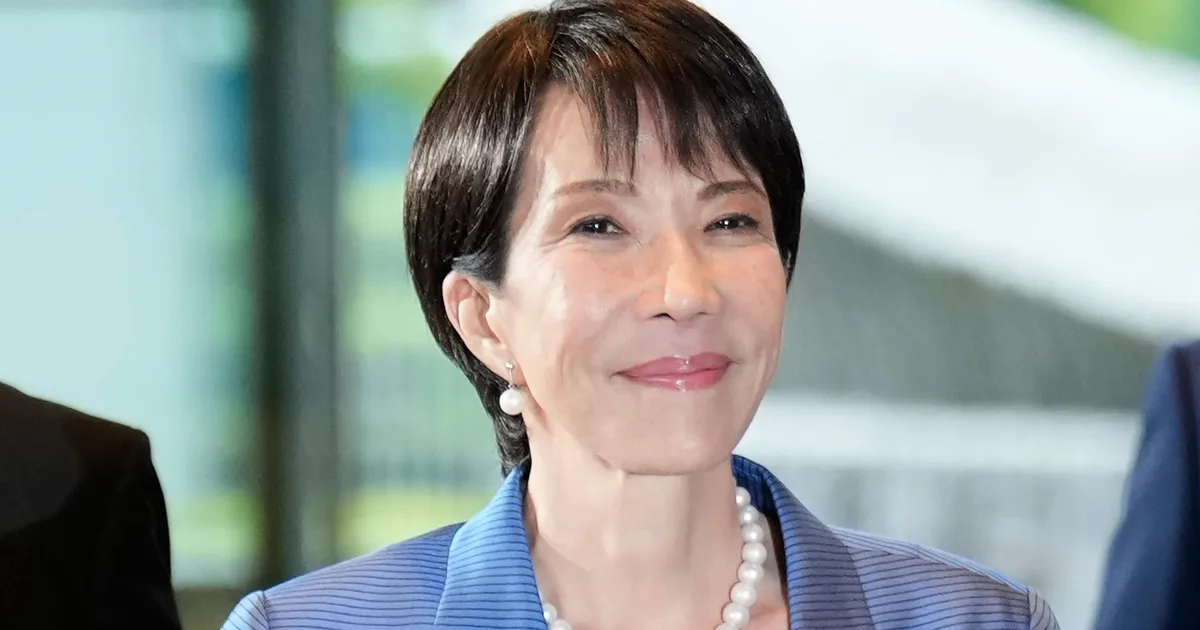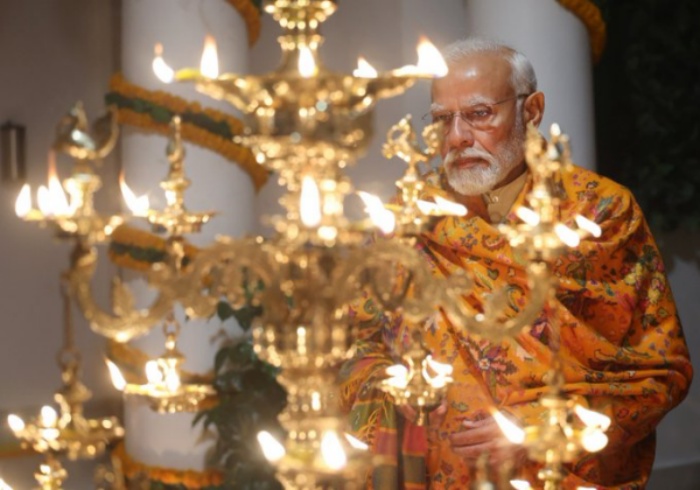Copyright brecorder

ANKARA/DUBAI: Turkiye ties to Hamas, once a liability in Washington, have turned into a geopolitical asset. By persuading Hamas to accept Donald Trump’s Gaza deal, Ankara has reasserted itself on the Middle East chessboard, to the dismay of Israel and Arab rivals. Initially resistant to the U.S. president’s ultimatum – free the Israeli hostages or face continued devastation – Hamas leaders relented only when Turkiye, a country they view as a political patron, urged them to agree to the American plan. Two regional sources and two Hamas officials told Reuters that Ankara’s message was unequivocal: The time had come to accept. “This gentleman from a place called Turkiye is one of the most powerful in the world,” Trump said last week, referring to Turkish President Tayyip Erdogan, after the Palestinian militant group agreed to a ceasefire and hostage-release plan. “He’s a reliable ally. He’s always there when I need him.“ Erdogan’s signature on the Gaza document supercharged Turkiye push for a central role in the Middle East, a status Erdogan has increasingly sought to reclaim, often invoking Ottoman-era ties and leadership. Now, after the deal, Turkiye is seeking to reap dividends, including in bilateral issues with the U.S., the sources said. Sinan Ulgen, director of the Istanbul-based think tank EDAM and a senior fellow at Carnegie Europe, said Ankara’s success in delivering Hamas’s acceptance of Trump’s Gaza deal has given it new diplomatic leverage at home and abroad. Turkiye, he said, is likely to use its renewed goodwill in Washington to push for progress on stalled F-35 fighter jet sales, an easing of U.S. sanctions and U.S. help in advancing Turkiye security goals in neighbouring Syria. “If those laudatory statements from Trump translate into lasting goodwill, Ankara could use that momentum to resolve some of the long-standing disagreements,” Ulgen told Reuters. At Trump-Erdogan meetings, a revamp of ties began The diplomatic recalibration between Ankara and Washington, officials said, began during Erdogan’s September visit to the White House, his first in six years. The meeting addressed unresolved flashpoints, including Turkiye push to lift U.S. sanctions imposed in 2020 over its purchase of Russian S-400 missile systems, a move that angered Washington and also led to its removal from the F-35 program. Syria was another key topic. Turkiye wants to pressure the U.S.-backed Kurdish Syrian Democratic Forces (SDF) to merge into the Syrian army. Ankara views the SDF as a threat due to its ties to the PKK, which Turkiye designates a terrorist group. That push appears to be gaining ground. SDF commander Mazloum Abdi confirmed a mechanism to merge with the Syrian army, an outcome Turkiye sees as a strategic win. The Gaza deal follows other boosts to Turkish prestige. Trump praised Erdogan for hosting Russia-Ukraine talks earlier this year, and Ankara’s influence grew after Bashar al-Assad’s fall in Syria in 2024, where Turkiye backed opposition forces. Qatar’s emir condemns ‘continued violation’ of Gaza ceasefire Turkiye ambition to reclaim a dominant Middle East role recalls for some sceptics the legacy of the Ottoman empire, which once ruled much of the region. Its collapse a century ago left modern Turkiye inward-looking as it built a secular republic and somewhat sidelined from regional diplomacy. For years, Ankara was not part of high-level efforts to solve the Israeli-Palestinian dispute, a core source of regional instability. Turkiye support for Islamist movements – including political and diplomatic backing for Hamas, whose leaders it has hosted – strained ties with Israel and several Arab states, and its perceived drift under Erdogan from NATO norms further distanced it from peacemaking. But to break the deadlock in Gaza ceasefire talks, Trump turned to Erdogan, betting on the Turkish leader’s sway over Hamas. Turkish officials, led by spy chief Ibrahim Kalin, assured Hamas the ceasefire had regional and U.S. backing, including Trump’s personal guarantee. By enlisting Erdogan, Trump handed Ankara the role it craved as a dominant regional Sunni power. The move unsettled Israel and rival Arab states, including Egypt, Saudi Arabia, and the UAE, long wary of Erdogan’s Islamist ambitions, two diplomats said. “Erdogan is a master in expanding his influence, seizing opportunities, taking advantage of events, turning them to his own interest and taking credit for them,” said Arab political commentator Ayman Abdel Nour. “Obviously the Gulf countries were not happy about Turkiye taking a leading role on Gaza but at the same time they wanted this conflict to end, to see an agreement and to see Hamas sidelined.“ While Arab states shared an interest with Turkiye in ending the war, said Lebanese analyst Sarkis Naoum, the larger role given to Ankara was worrisome for them, recalling the history of Ottoman imperial rule over many countries in the region. Turkiye Foreign Ministry and MIT intelligence agency did not respond to Reuters requests for comment. The U.S. State Department did not immediately reply to a request for comment. For Hamas, the main concern was that Israel might renege on the deal and resume military operations. Deep distrust nearly derailed the process, regional sources said. “The only real guarantee,” a senior Hamas official told Reuters, “came from four parties: Turkiye, Qatar, Egypt, and the Americans. Trump personally gave his word. The U.S. message was: ‘release the hostages, hand over the bodies, and I guarantee there will be no return to war.’” Crushing pressure on Hamas Turkiye entry into the talks was initially vetoed by Israel, but Trump intervened, pressuring Tel Aviv to allow Ankara’s involvement, two diplomats said. There was no immediate comment from Israel’s foreign ministry. A senior Hamas official said Gaza’s military leaders accepted the truce not as surrender, but under the crushing pressure of relentless mediation, a collapsing humanitarian situation, and a war-weary public. The deal won the release of Israeli hostages taken during Hamas’s October 7, 2023, attack, which killed 1,200 people, and triggered an Israeli offensive that has since left over 67,000 Palestinians dead, according to Gaza health authorities. Whether the Gaza deal will eventually open a way toward a Palestinian state remains unclear. Turkiye and Arab states including Qatar and Egypt say the plan lacks a roadmap toward a two-state solution, a historic Palestinian demand. Asked about a potential Turkish troop deployment to Gaza in a post-war scenario and ways to ensure the enclave’s security, Erdogan said on October 8 the ceasefire talks were critical for discussing the issue in detail, but the priority was achieving a full ceasefire, aid deliveries and rebuilding Gaza.



